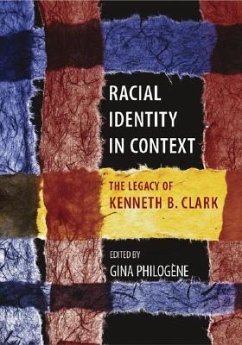
Diana, Self-Interest, and British National Identity
Versandkostenfrei!
Versandfertig in 1-2 Wochen
71,99 €
inkl. MwSt.

PAYBACK Punkte
36 °P sammeln!
The public display of grief that accompanied the funeral of the late Princess of Wales drew attention to the many Britons who had found an affinity with Diana. Seeking an explanation for this affinity, Taylor argues that, during Diana's brief time in the world spotlight, Britain underwent a change in values and a shift in national identity from a system based almost exclusively on household and family values to one more accepting of individual autonomy and self-interest. Accustomed to royalty as symbols of national values and identity, persons of resentment (women, people of color, and homosex...
The public display of grief that accompanied the funeral of the late Princess of Wales drew attention to the many Britons who had found an affinity with Diana. Seeking an explanation for this affinity, Taylor argues that, during Diana's brief time in the world spotlight, Britain underwent a change in values and a shift in national identity from a system based almost exclusively on household and family values to one more accepting of individual autonomy and self-interest. Accustomed to royalty as symbols of national values and identity, persons of resentment (women, people of color, and homosexuals) found the divorced princess an apt symbol of their transvalued values. These groups declared ignoble the Queen, Prince Charles, and others who had previously been the patterns for nobility in British society, and they held up Diana as one truly noble. The British monarchy had come to symbolize household and family, but disaffected groups found themselves excluded from this model. While royal adultery and divorces were long characterized by a double standard, the Princess of Wales was able to win over considerable public sympathy to her plight. By the 1990s, British household size and structure had changed so dramatically that a challenge to a traditionally based family value system was well timed. Women, people of color, and homosexuals saw in Diana's life their own transformation in identity that now found greater acceptance in the larger society.












